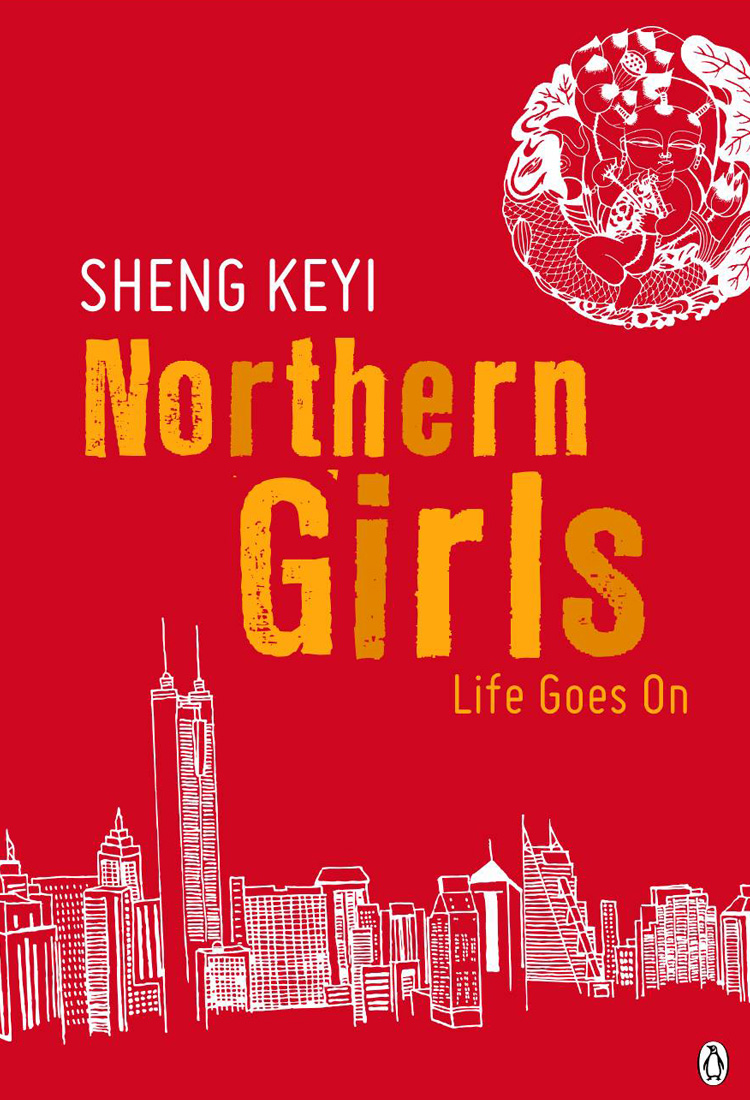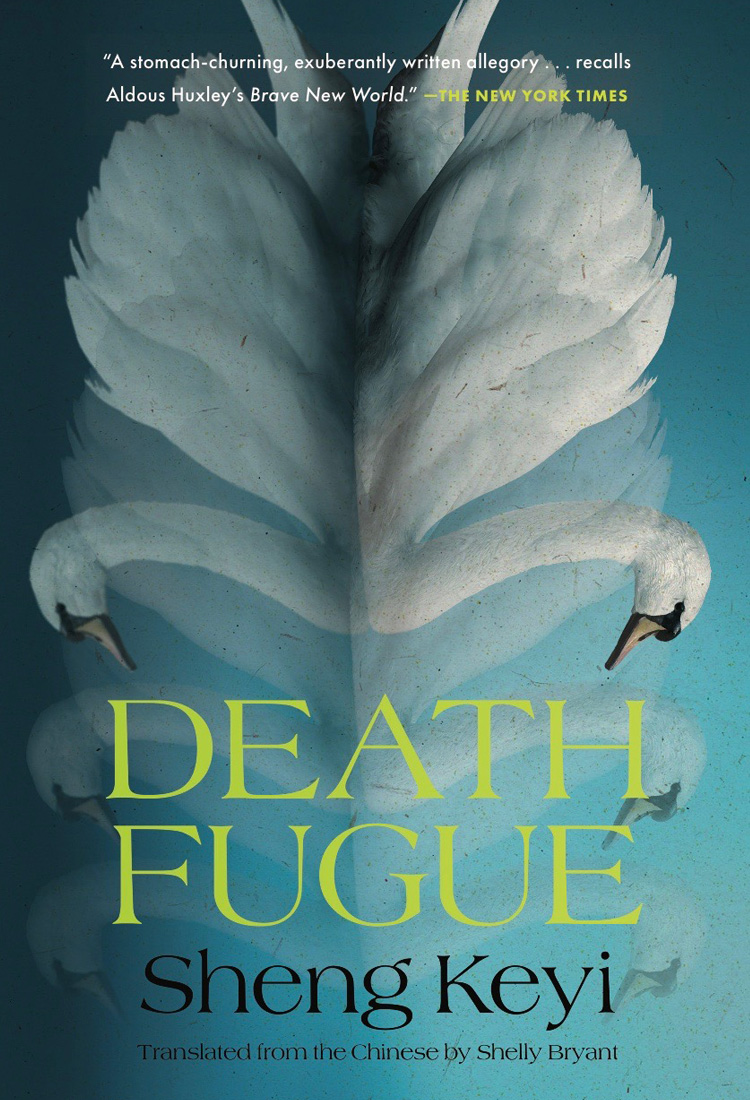Polish: Dziewczyny z północy, Dialog (Poland, 2022, tr. Kinga Kubicka)
English: Northern Girls, Penguin Books (Singapore, 2021, tr. Shelly Bryant)
Czech: Holky ze severu, Verzone (Czech Republic, 2018, tr. Kamila Hladíková)
Russian: Сестрички с севера, Hyperion (Russia, 2016, tr. Natalia Vlasova)
English: Northern Girls, Penguin Books (Australia, 2012, tr. Shelly Bryant)
Chinese: 北妹, Changjiang Literature & Art Press (China, 2004)
Synopsis
In the early 1990s, people all over China are scrambling to make their fortune. Qian Xiaohong is one of them. With no diploma, no skills, and no residence permit, she is one of the class known to residents of Guangdong as ‘northern girls’ – young women who come from outside the province to work, and a class who is to be completely ignored. She does a variety of blue collar work, including shampoo girl, hotel receptionist, and shop keeper, going through jobs almost as quickly as she goes through men. Qian Xiaohong is naturally endowed with large breasts, which become her symbol of womanhood, making her endure humiliation and harsh labels, but also reflecting her vigor and vitality. Like Jack Kerouac’s On the Road, Qian Xiaohong represents true life on the road, where real life goes on.
Death Fugue (死亡赋格)
Turkish: Füg, Dedalus Kitap (Turkey, 2024, tr. Serkan Toy)
English: Death Fugue, Restless Books (United States, 2021, tr. Shelly Bryant)
Italian: Fuga di morte, Fazi Editore (Italy, 2019, tr. Eugenia Tizzano)
Swedish: Dödsfuga, Bokförlaget Wanzhi (Sweden, 2019, tr. Rebecka Eriksson)
English: Death Fugue, Giramondo Publishing (Australia, 2014, tr. Shelly Bryant)
Chinese: 死亡赋格, INK Publishing Company (Taiwan, 2013)
Chinese: 死亡赋格, Cosmos Books Ltd. (Hong Kong, 2013)
Banned in China for its taboo allusions to the Tiananmen Square massacre, Sheng Keyi’s Death Fugue is a lyrical and explosive dystopian satire that imagines a world of manufactured existence, the erasure of personal freedom, and the perils of governmental control.
Synopsis
One morning a nine-story tower of excrement of unknown origin appears in the center of Dayang’s capital, Beiping. The government swiftly scrubs the scene of all evidence and hands down its final word: Do not ask questions; dissent will be punished. But the crowd gathered in Round Square only grows and soon explodes in unrest. Poet Mengliu and his girlfriend Qizi join the uprising, but thousands disappear in the brutal crackdown that follows, including Qizi, the newly appointed protest leader. Mengliu abandons poetry and revolution but never gives up hope that Qizi may still be alive…
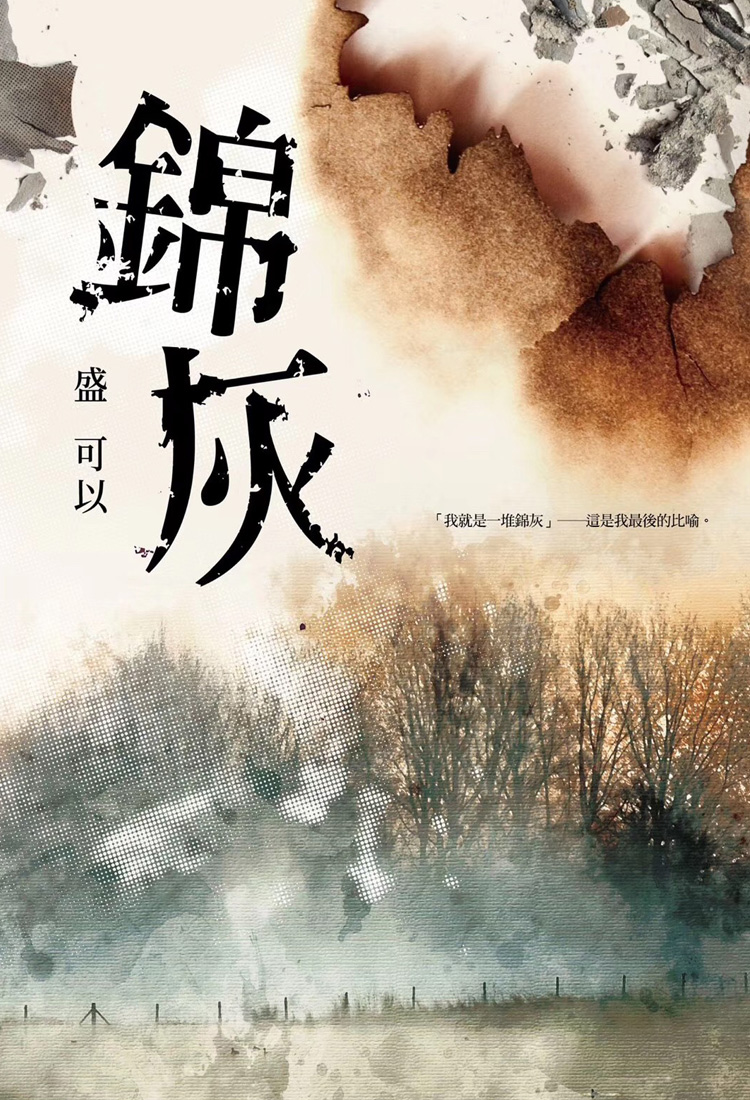
The Metaphor Detox Centre (锦灰)
Polish: Tęczujący popiołu, Państwowy Instytut Wydawniczy (Poland, 2021, tr. Joanna Krenz)
Chinese: 锦灰, Linking Publishing (Taiwan, 2018)
A contemporary, speculative story which draws upon the history of the Great Chinese Famine and Cultural Revolution, The Metaphor Detox Centre is the new novel by one of China’s boldest young writers. As in her previous works Northern Girls and Death Fugue, Sheng Keyi employs elements of allegory and dystopia to explore the complex past, present and future of her native China.
Synopsis
Yao Minzhu is a female journalist, always in pursuit of truth. In her articles, she frequently employs sharp metaphors as a means of criticizing the government, until she is apprehended under the suspicion that she is suffering from a new disease known as metaphor. She is admitted to the Metaphor Detox Centre, where she is held along with lawyers and other public intellectuals, injected with mind-control fluids and forced to copy out and recite the writings of successive national leaders…
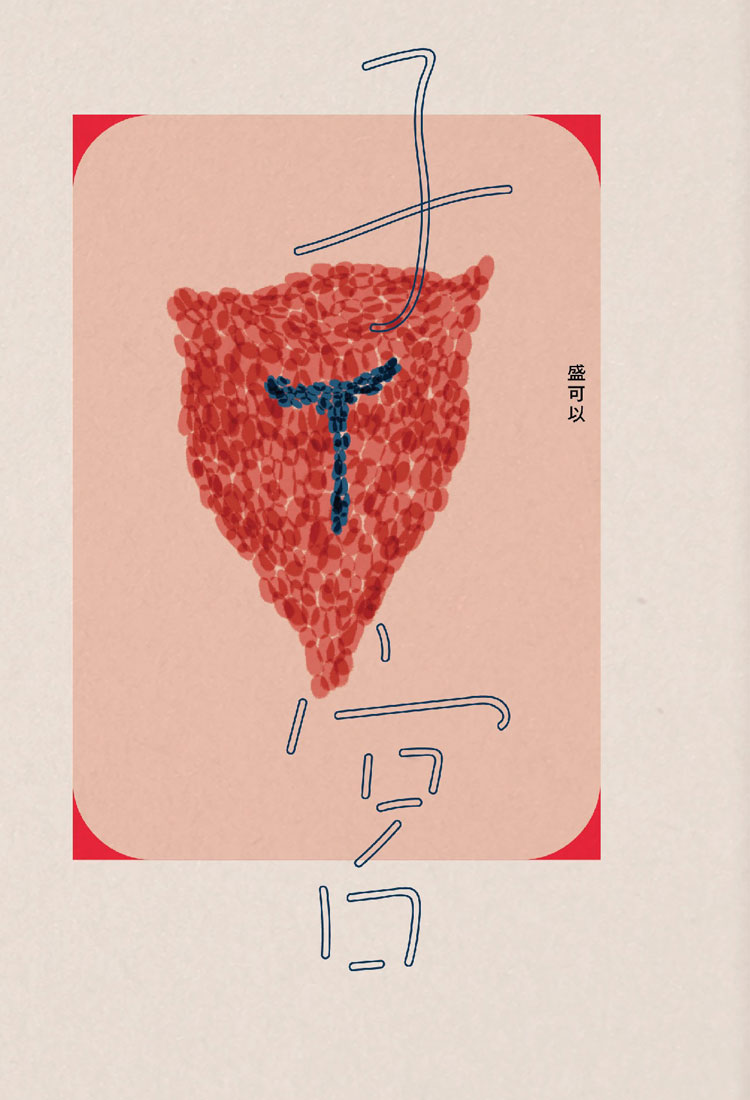
The Womb (子宫)
German: Die Gebärmutter, DuMont Buchverlag (Germany, 2023, tr. Frank Meinshausen)
Japanese: しきゅう, Kawade Shobo (Japan, 2022, tr. Shoko Kawamura)
Chinese: 息壤, People’s Literature Publishing House (China, 2019)
Chinese: 子宫, Chiu Ko Publishing Co., Ltd (Taiwan, 2019)
Ever bold in both the subject matter and style of her writing, Sheng Keyi explores the lives of contemporary Chinese women, with the womb as a point of departure for each woman’s story.
Synopsis
Under the tightly controlled family planning system in China, women do not possess the right to reproduce freely: every uterus is monitored closely, and heavy wombs bring their owners additional physical and mental weight. Starting from the womb itself, and panning out to encompass a variety of personal, family and national affairs, including the complex issues surrounding family planning, the uterus, birth control, the body and female sexual desire, the novel portrays the lives and marriages of five women in contemporary China.
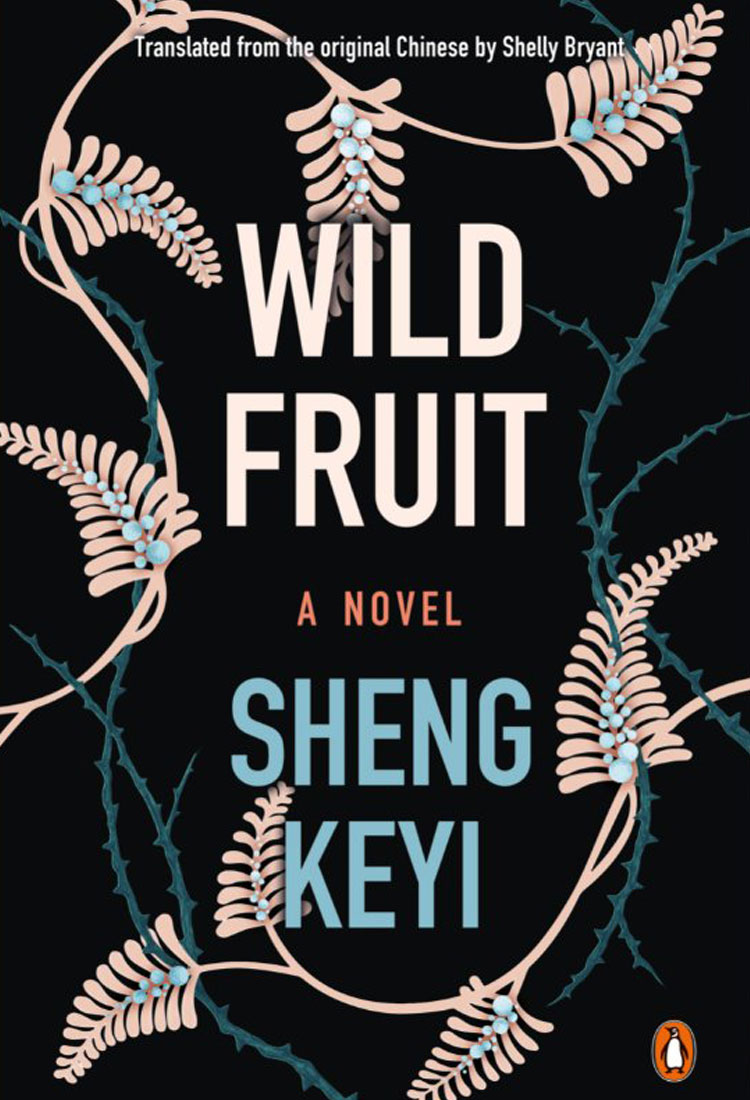
Wild Fruit (野蛮生长)
Spanish: Frutos salvajes, Galaxia Gutenberg (Spain, 2023, tr. Miguel Sala Montoro)
Italian: Crescere selvaggio, Fazi Editore (Italy, 2022, tr. Eugenia Tizzano)
English: Wild Fruit, Penguin Books (Singapore, 2021, tr. Shelly Bryant)
Turkish: Vahşi Meyve, Liber Plus Yayinlari (Turkey, 2021, tr. Süheyla Abanoz)
English: Wild Fruit, Penguin Viking (Australia, 2018, tr. Shelly Bryant)
Chinese: 野蛮生长, Beijing October Literature and Arts (China, 2015)
Synopsis
The story of Wild Fruit, spanning a century, centers on four generations of the Li family. Covering recent history from the period of the Land Reforms through Reform and Opening Up and on the modern period of unbridled materialism, it presents a microcosm of China’s recent social development. The personal destinies of individual characters and the social system of historical events through which they lived are as inextricable as flesh and blood, and issues such as the crackdown campaigns, family planning, the asylum system, and SARS are like hands prodding the characters from behind. These characters thrive through a barbaric growth, as reflected not only in the very nature of their living environment, but also deep in the bones of each family member. The father, Li Jiaxu, represents the patriarchy, an autocratic man who arouses resentment and rebellion in his children, while also contaminating them, to varying degrees, with his own bent nature. Examples of familial and social dysfunction include Li almost drowning his newborn daughter, his eldest son being sent to prison for fishing in the river, and his eldest daughter, seven months pregnant, being coerced by the family planning group, nearly dragging the whole clan into court. When the elder Li finally exhibits a somewhat meeker attitude, he has to sit by and watch his children and grandchildren live in a vulgar environment, suffering accident, injury, and premature death.
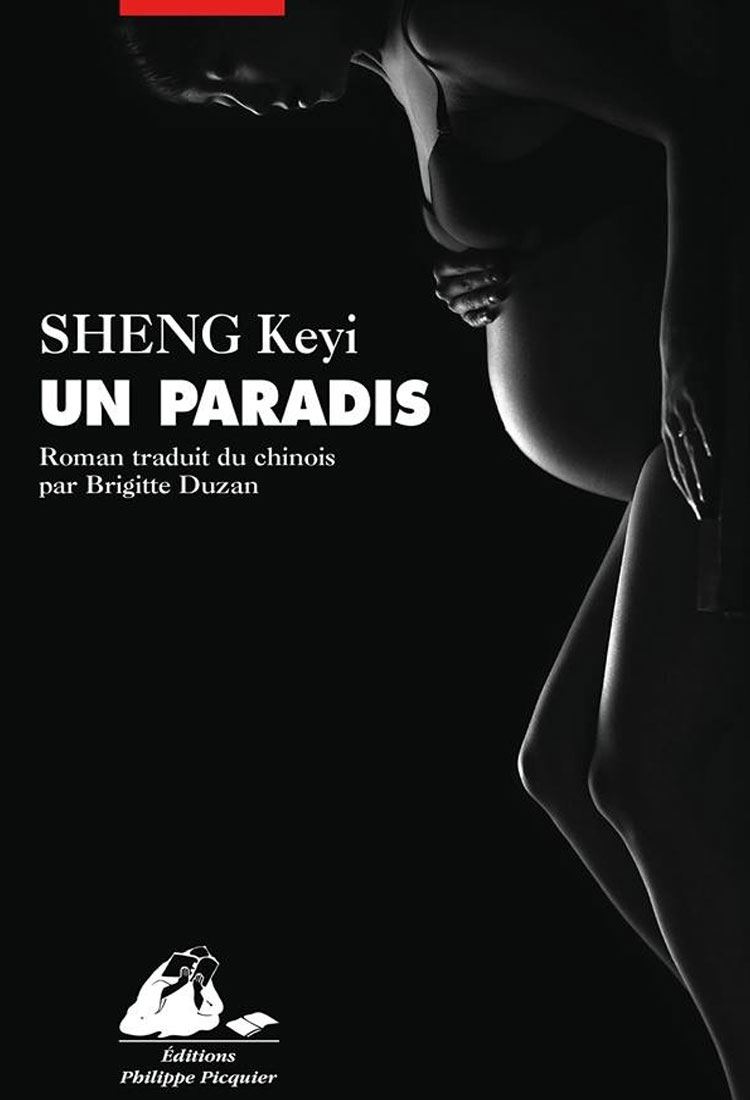
Paradise (福地)
French: Un Paradis, Éditions Philippe Picquier (France, 2018, tr. Brigitte Duzan)
Chinese: 福地, Sichuan Literature and Arts (China, 2016)
Synopsis
Wenshui, une petite chinoise à la rue se retrouve dans un centre d’accueil où les mères-porteuses sont traitées comme des détenues. Sheng Keyi signe un texte plein de tendresse et de douceur pour évoquer des choses très dures.
Elle n’est pas tout là Wenshui, Pêche pour ses collègues, 168 pour l’administration de l’établissement où elle a été recueillie, elle est un peu simplette, son monde se résume à sa mère disparue, son enfance, les loubards qui l’ont maltraitée et les petits animaux, les oiseaux, les papillons, surtout son petit chien Mascotte le seul être pour lequel elle éprouve un peu de tendresse. Elle n’a pas eu beaucoup de chance, elle se retrouve vite seule après le décès de sa mère, elle vit dans un coin de remise où les loubards, profitant de son esprit simplet, la violentent sans vergogne et la violent si bien qu’elle se retrouve enceinte. Anéantie, sale, hébétée, elle est conduite dans le centre de Monsieur Niu, un type sans scrupule qui a fondé un établissement où les mères porteuses sont accueillies le temps de leur grossesse et de leur accouchement, le temps pour Monsieur Niu de vendre leur enfant, leur « produit », à une famille ayant les moyens d’en acheter un. Il y a, selon le marchand de bébés, un marché pour ce type de « produit ». On veut bien le croire, la politique de l’enfant unique a certainement dopé ce « marché » car lorsque celui-ci disparaît la mère est souvent trop âgée pour pourvoir à son remplacement.
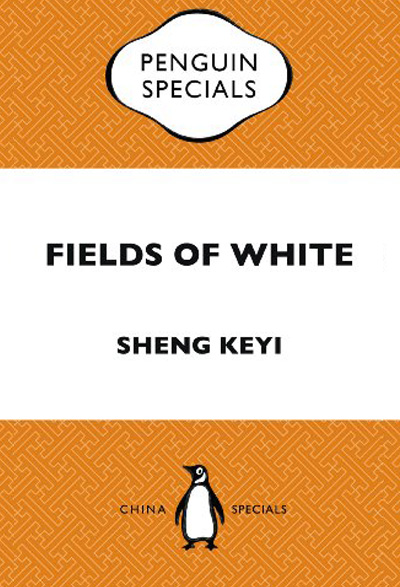
Fields of White (白草地)
English: Fields of White, Penguin Specials (Australia, 2014, tr. Shelly Bryant)
Chinese: 白草地, Tianjin Literature Press (China, 2010)
Synopsis
Jason is a thirty-something, white-collar salesman on the verge of a mid-life crisis. The threat of redundancy and the demands of the multiple women in his life – wife, mistress and a business client with whom professional and personal boundaries have begun to blur – compound the symptoms of a mysterious affliction that appears to be taking over his body. When the seemingly separate strands of Jason’s life start to converge, he discovers that the reality he knows and commands never existed in the first place… An offbeat and true-to-life tale of the inconstancy of modern life.
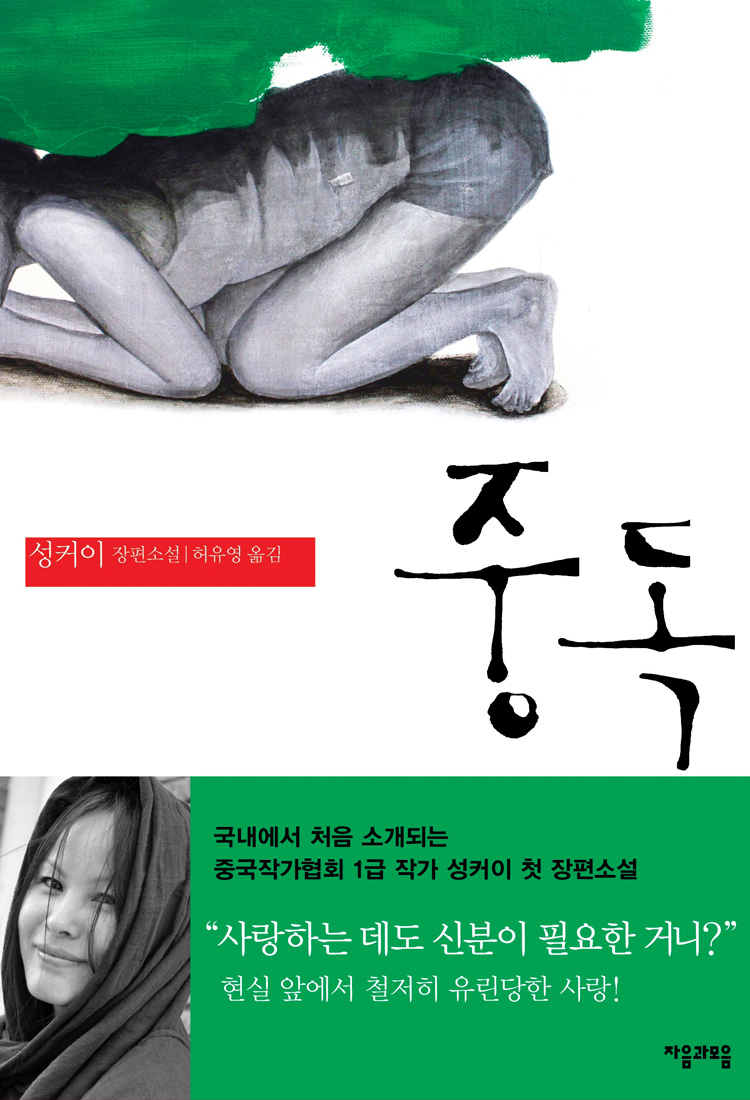
Water and Milk (水乳)
Korean: 슴독, Jamo Book (South Korea, 2010)
Chinese: 水乳, Chunfeng Literature and Art Press
Synopsis
The protagonist of Water and Milk, Zuo Yina, is a woman with high expectations of life, who yearns for a chance to get out of mediocrity and to save herself from a life wasted. But everything that her husband does seems out of sync with her own desires. On the other hand, everything is seamless and perfect between Zuo Yina and her new lover, Zhuang Yan. But once Zhuang Yan’s ex-wife and his daughter get involved in their relationship, things become complicated. A highly possessive woman, Zuo Yina wants not only Zhuang Yan’s body, but also his everything. This impulse threatens to make her lose Zhuang Yan.
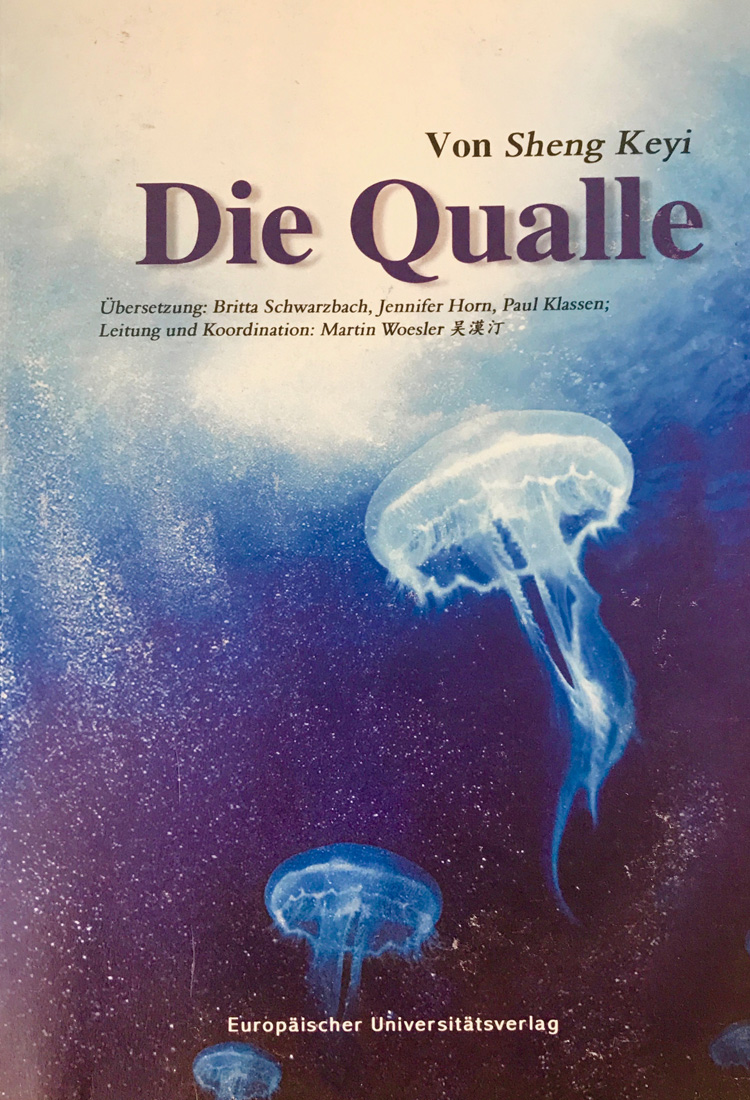
The Jellyfish (水母)
German: Die Qualle, Europäischer Universitätsverlag (Germany, 2011, tr. Martin Woesler)
Chinese: 水母, China Writers Press (China, 2006)
Synopsis
Suffering is better than being bored, just like losing love is better than not loving at all… Zhu Miao, a woman in her 30s, no longer believes in love and decides to enjoy celibacy, but she gets involuntarily involved in an emotional whirlpool between a teenager and a middle-aged man… Later she finds out that everything is a scam, and once the good times have faded, she is eventually left all alone and covered in wounds.
The Jellyfish is the author’s direct and powerful interpretation of the deep landscape of women’s lives.
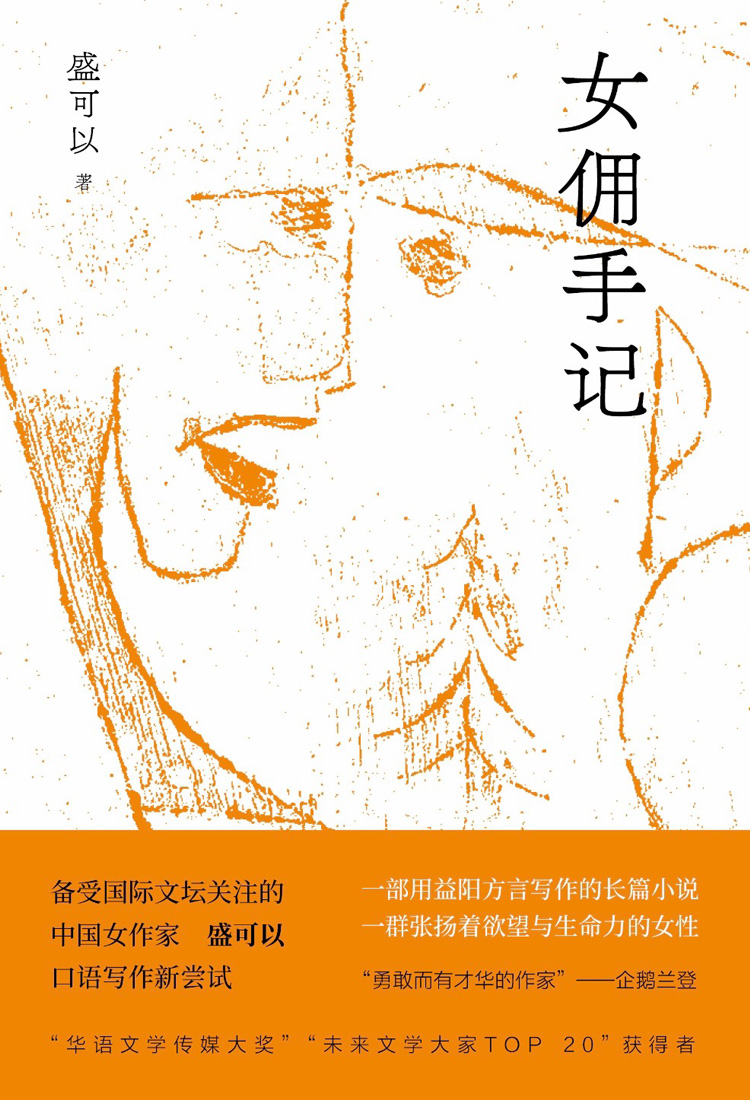
Maid’s Notes(女佣手记)
Chinese: 女佣手记, Beijing October Literature and Arts (China, 2020)
Synopsis
Coming soon…
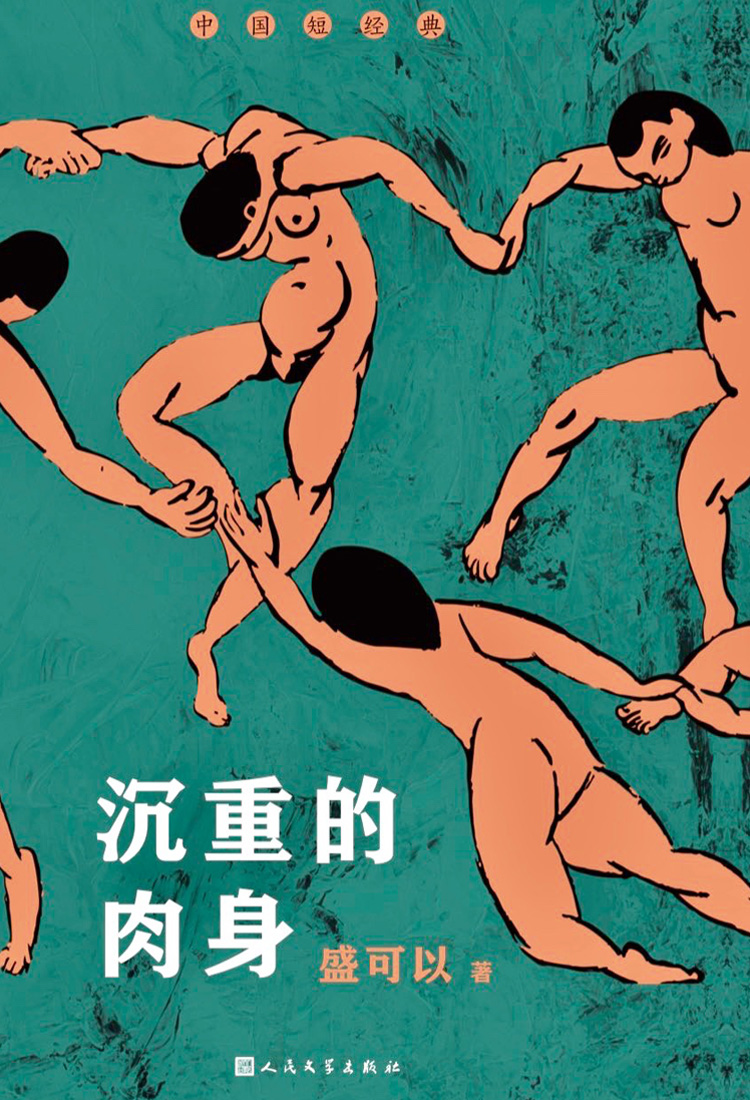
Heavy Body (沉重的肉身)
Chinese: 沉重的肉身, People’s Literature Press (China, 2021)
Synopsis
Coming soon…
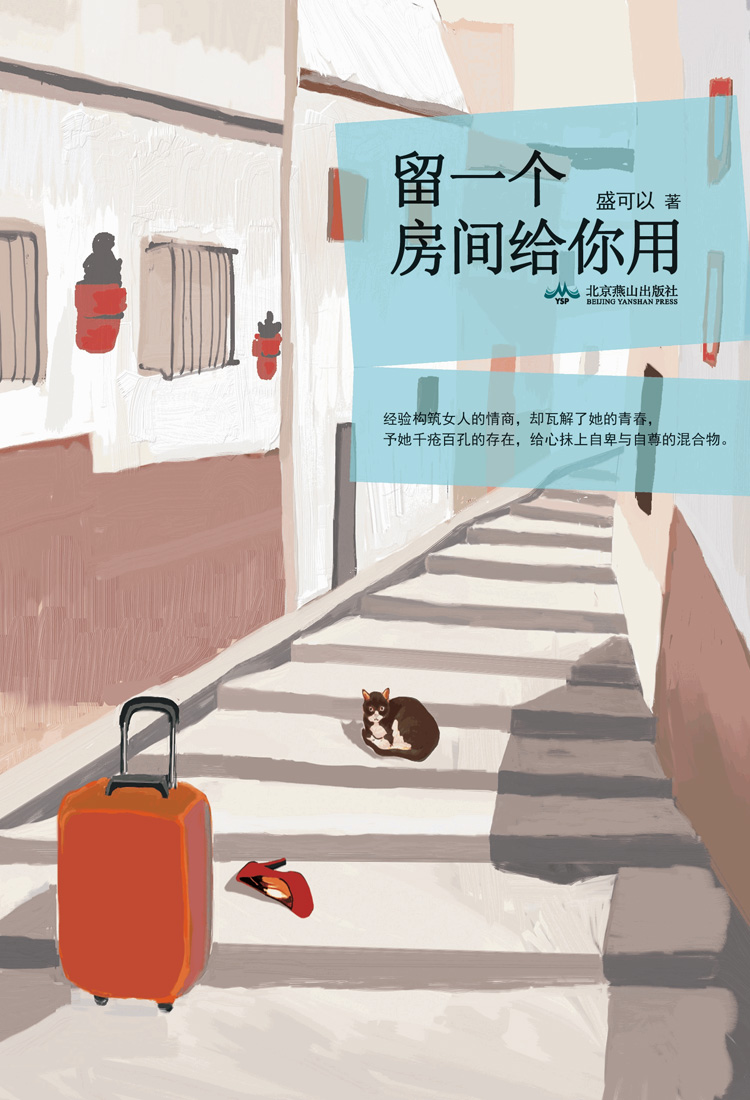
Leaving a Room for You (留一个房间给你用)
Chinese: 留一个房间给你用, Yanshan Press (China, 2012)
Synopsis
This selection of short stories, written by Sheng Keyi over the past decade, contains thirteen of her most representative works.
Sheng Keyi remains calm in the face of female sexuality and desire. The women she describes are dangerous. Even when they are weak, their love and desire for independence can lead to both richness and tragedy. Readers marvel at her direct disregard for taboos for female sexuality, and will be struck by her keen, accurate insights. But she does not stop there. She also has a keen awareness of male offenses, which constitute a sharp, burning challenge. Each of these women, confined to her own tiny space and disillusioned with love, though knocked around and battered, still remains vigorous, worldly, or cruel, like a flower, dripping wet after it has bloomed overnight, even in the presence of a nearly undetectable bewitching, evil influence. When Sheng Keyi writes of evil and violence, she handles it with a sensibility in the spirit of Yu Hua, while also reminiscent of the writing of Flannery O’Connor.
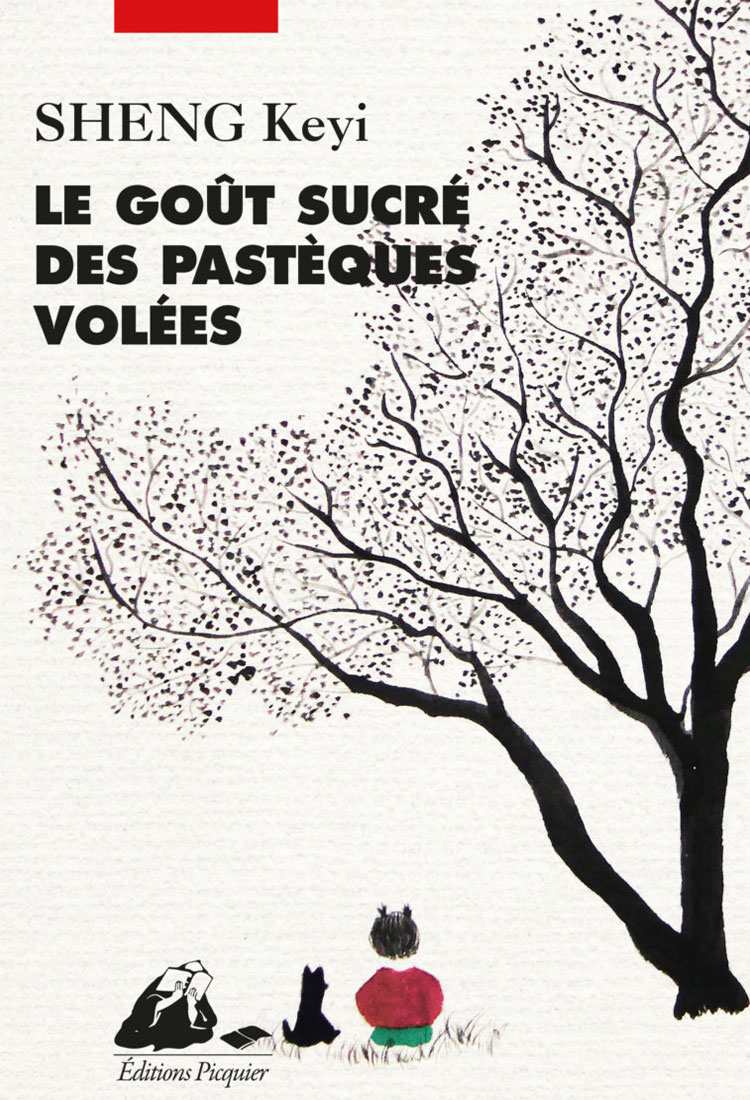
The Sweet Taste of Stolen Watermelons (还乡书)
French: Le Goût sucré des pastèques volées, Éditions Philippe Picquier (France, 2021, tr. Brigitte Duzan)
Chinese: 还乡书, Peking University Press (China, 2018)
Synopsis
C’est le goût inoubliable de l’enfance que nous livre ici Sheng Keyi, une brassée de parfums et de saveurs venus du plus loin de son enfance dans la campagne du Hunan. L’odeur des eaux dormantes où, se faisant une petite barque d’une bassine en fer, elle va cueillir les fleurs de lotus et les châtaignes d’eau. L’arôme discret des fleurs du jujubier sous lequel elle faisait ses devoirs, celui du riz cuit dans la paille et des beignets d’armoise et de citrouille cuisinés avec les légumes du potager maternel.
C’est un pays d’étangs et de rizières, où l’on mange à peine à sa faim, où l’on ne possède rien. La petite fille rêve de déployer ses ailes et de découvrir le monde au-delà de la rivière. Et elle y réussira, qui sait, mais entre-temps tout ce qui faisait la joie de son enfance aura été détruit. A la liberté de la petite sauvageonne d’alors répond la rare liberté de ton de la romancière d’aujourd’hui. Sheng Keyi dénonce ardemment les ravages de la modernisation des campagnes chinoises et fait renaître l’éclat des vies humbles qui ont disparu.



